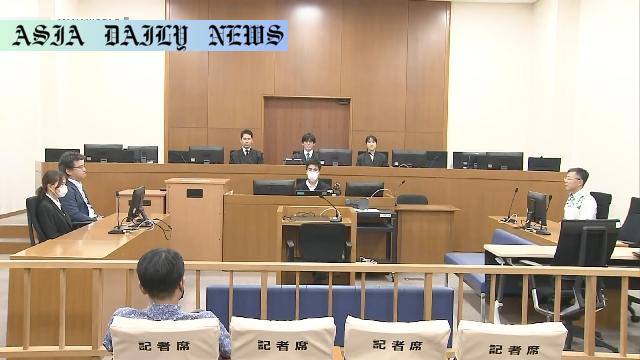Okinawa US Marine Sentence: A US Marine has been sentenced to seven years in prison in Okinawa for attempted sexual assault and violence.
US Marine sentenced to seven years in prison for attempted sexual assault in Okinawa, Japan.
The 22-year-old Marine Lance Corporal committed a brutal attack, causing injury and mental distress to the victim.
The court found the testimony of the victim credible, leading to the sentencing despite the Marine pleading innocent.
The case prompted the introduction of a notification system for arrests involving US military personnel.

US Marine Found Guilty of Attempted Sexual Assault in Okinawa
In a landmark ruling, a US Marine was sentenced to seven years in prison by the Naha District Court in Okinawa, Japan for a brutal attempted sexual assault. The incident, which took place in May of last year, involved 22-year-old Lance Corporal Jamel Clayton, who was accused of strangling and attacking a woman he did not know. Japan’s southern prefecture of Okinawa, which hosts a significant number of US military bases, was shaken by this vicious crime.
During the trial, the defense argued vehemently for the Marine’s innocence, questioning the credibility of the victim’s testimony. Prosecutors, however, sought ten years imprisonment, building a case strongly supported by the tangible emotional and physical impact on the victim. The presiding judge, Obata Kazuhiko, ruled in favor of the prosecution, citing the victim’s testimony as highly credible. The explicit details and authenticity provided by the victim were said to reflect a genuine and traumatizing experience.
The Psychological and Physical Toll on the Victim
The consequences of the attack extended far beyond the physical injuries inflicted on the victim. Judge Obata highlighted the psychological trauma endured by the woman, noting that she “foresaw her own death” during the attack. The traumatic experience left the victim in a state of severe mental distress, a fact that strongly influenced the court’s sentencing. The judge described the Marine’s actions as “vicious enough to result in death,” underscoring the severity of the crime.
Impact on US-Japan Relations and New Protocols
This case has cast a shadow over US-Japan relations, particularly in Okinawa, where tensions already exist due to the heavy US military presence. Neither the Japanese government nor the prefectural police informed the Okinawa prefectural government about the Marine’s arrest initially, exposing loopholes in the existing communication framework. In response, a revised notification system was introduced last July. From now on, the prefectural government must be informed whenever US military personnel are arrested or face legal scrutiny.
Addressing Broader Concerns
The case raises questions about accountability within the US military as well as the treatment of victims in the justice system. Despite the defense questioning the victim’s reliability, the court’s emphasis on her testimony reinforces the importance of listening to survivors and ensuring justice. It also draws attention to the growing need for international cooperation in areas with significant expatriate or military presence to prevent such incidents and ensure swift legal actions when they occur.
As Okinawa moves forward with stricter policies on crime notifications and legal transparency, this case remains a stark reminder of the human cost of crime and the critical role of justice systems in addressing such heinous acts.



Commentary
Repercussions of the Verdict
The recent sentencing of a US Marine in Okinawa has sent ripples far beyond the local community, raising questions on a global scale regarding military accountability and victim justice systems. The act itself highlights the dangers of unchecked aggression and the fragility of trust in communities that play host to a foreign military presence. The judge’s stern condemnation of the crime showcases the deep harm caused by such actions, both to individuals and society.
Victim Support and Justice
The court’s reliance on the victim’s testimony as credible is a strong step toward victim-centric justice. Historically, victims of such crimes have often been met with skepticism, compounding their trauma. In this particular case, the explicit nature of the victim’s account overrode any doubts, leading to justice being served. This could set a precedent for future cases where victims’ voices should be given more weight, particularly in sensitive and violent crimes.
International Relations Under Strain
The presence of US military bases in Okinawa has long been a contentious issue, straining the relationship between the local population and military personnel. Incidents such as this widen the chasm of mistrust. For the US military, this case should serve as a wakeup call to implement stricter conduct guidelines and oversight measures to prevent future crimes among its ranks.
Moving Forward with Reforms
Okinawa’s decision to introduce a new notification system for crimes involving military personnel is a key reform sparked by this unfortunate event. Notification protocols may seem like a small administrative step, but they are vital for fostering transparency and accountability. Alongside legal reforms, community engagement and outreach programs can play a critical role in rebuilding trust between the US military and Okinawan residents.